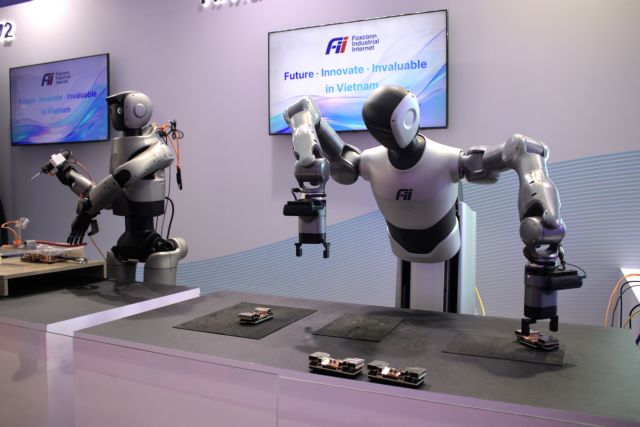“Young Vietnamese not only participate in digital transformation but are also at the centre around which it revolves,” Nguyễn Văn Được, chairman of the HCM City People’s Committee, told the Intelligent Generation NOW talk show this morning.

HCM CITY — “Young Vietnamese not only participate in digital transformation but are also at the centre around which it revolves,” Nguyễn Văn Được, chairman of the HCM City People’s Committee, told the Intelligent Generation NOW talk show this morning.
The talk show is part of the 2025 Autumn Economic Forum held at Thisky Hall Conference Centre in HCM City to foster dialogue between Government officials, global experts and scholars and young leaders about the mindset, skills and responsibilities of young generations in an era of AI, global knowledge and green and digital transformation.
The attendees included representatives of international organisations and foreign enterprises like the World Economic Forum, UNESCO, RMIT University Vietnam, CMC Corporation, the country’s second-largest ICT firm, and 500 young leaders.
It centred on three main points: young people’s responsibilities in green and sustainable transformation, the challenges and opportunities for Vietnamese and foreign youths in the context of extensive integration and global competition and actions needed to build an ecosystem that supports young people and encourages them to contribute to the future.
Deputy Prime Minister Bùi Thanh Sơn said in his opening speech that the world is facing major changes such as the Fourth Industrial Revolution, digital transformation, green transition, and the rise of the intellectual economy.
“These changes have a profound impact on every country, every business and every individual, especially young people.”
One of Việt Nam’s advantages is having a smart, creative and ambitious young generation, and youth are placed at the centre of every national development plan with high expectations, he said.

They are the determining factor behind the country's development, and their mission is to bring Việt Nam on par with other countries, he said.
He noted that the Government is committed to allocating resources for innovation and sustainable development, but using these resources wisely depends on the younger generations.
“None can prepare for the future of the young generation better than themselves,” he said, adding that it is crucial for young Vietnamese to proactively embrace innovation, foster creativity and be willing to take risks.
Được said today’s youth are quick to grasp technology.
“They not only participate in the digital transformation but are also the centre around which the transformation revolves.”
He said the city is creating more favourable conditions for youth to tap their full potential, including investing in digital infrastructure, developing human resources and completing the creative ecosystem.
Professor Scott Thompson Whiteside, general director of RMIT University Vietnam, said: “As we embrace the transition of digital transformation and advance manufacturing with the green shift, the youth of Việt Nam can help advance sustainable development.”
Young people are the driving force behind innovation and entrepreneurship in Việt Nam, particularly in the economy, he said.
“They are tech-savvy, creative and adaptable – qualities that place them in a leading role in adapting and advancing eco-friendly digital technologies and solutions.”
Stephan Mergenthaler, managing director of the WEF, spoke about the role of youth in green and digital transformation, analysed global development trends and outlined prospects for future workplace changes.
The future of work would require human-machine collaboration, and young people, facing a new world of work with decades to develop, must prepare for this, he said.
A changing work environment could require a mindset shift to collaborate with machines and intelligence, acquiring new skills for a more integrated and dynamic workplace, he said.
“The world of work will move from one that focuses on different domains to one that allows people to operate with greater insistence, and from specialisation to integration.”
His speech was followed by a panel discussion between representatives of the UNESCO, the WEF, and six young Vietnamese leaders that focused on social responsibilities and the role of youth in the city’s digital and green transformation.
RMIT Vietnam and the HCM City Centre for the Fourth Industrial Revolution (HCMC C4IR) also signed a memorandum of understanding on mutual cooperation in human resources development, strategic research, technological application, innovation and creativity, and consolidating the city’s position as an economic and intellectual hub.

The morning session concluded with the AI Generation NOW Seminar with local and international speakers hosted by CMC Corporation.
It emphasised the role of artificial intelligence in green and digital transitions, discussed strategies for developing AI resources, and enhanced cooperation between the government, businesses, scholars, and international organisations.
The Autumn Economic Forum is being held from November 25 to 27 to offer a platform for businesses and senior officials to discuss green growth and digital transformation.
It is organised by HCMC C4IR, city agencies, central ministries and agencies, and the WEF. — VNS




